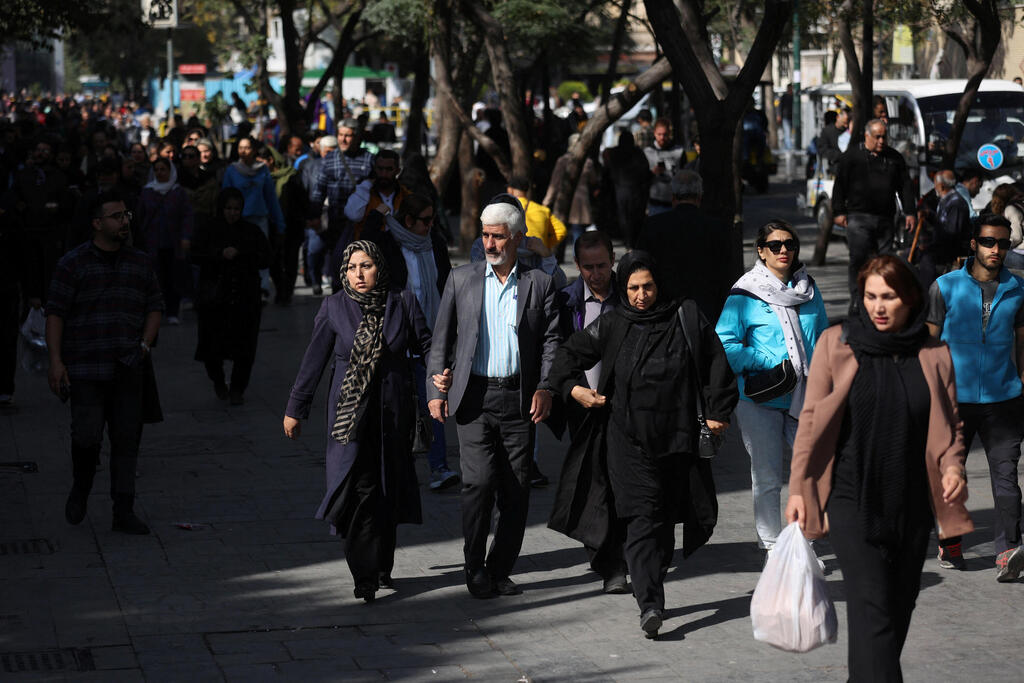Israel’s New Government Passes Controversial Judicial Reform Law
Israel’s Controversial Judicial Reform Bill: What You Need to Know
Israel has been the focal point of many debates lately, specifically regarding its new government’s recent move to pass a contentious judicial reform law. This change has sparked protests, heated discussions, and, of course, a whole lot of varying opinions. In this article, we’ll dive deep into the details surrounding this judicial reform law, why it’s causing such a stir, and what it means for the future of Israel.
What’s Happening with the Judicial Reform Law?
Let’s start with the basics. The new law, primarily backed by Prime Minister Benjamin Netanyahu’s government, aims to reduce the power of the judiciary and give more decision-making authority to the Knesset (Israel’s parliament). This shift is perceived differently across the political spectrum. Proponents argue that this reform is necessary to balance power, while critics warn it threatens democracy and the rule of law.
So, what are the specifics? Here’s a breakdown:
- Judicial Oversight: The reform limits the Supreme Court’s ability to overturn government decisions, arguing that elected officials should have the final say.
- Appointment of Justices: There’s a significant change in how justices are appointed, allowing the ruling coalition more influence over judicial appointments.
- Political Oversight: The law introduces measures that might let political leaders interfere in judicial processes more explicitly.
This swift move has triggered a spectrum of reactions—from outright support to vehement opposition—and has further polarized an already divided society.
Why the Controversy?
You might be wondering, why all the uproar? Isn’t reforming the judicial system something that can be beneficial? The answer isn’t as straightforward as it may seem.
Disruption of Checks and Balances
One critical argument against the new law is that it dismantles vital checks and balances. The judiciary’s ability to challenge government actions is a cornerstone of democratic society. When judicial power is curtailed, there’s a risk that democratic principles might slide into autocratic governance. Think of it like a three-legged stool—the legislature, executive, and judiciary all need to be strong and balanced for stability. Take one away, and the snooze-worthy narrative of “it won’t happen here” can become a nightmarish reality pretty quickly.
Public Response
The public’s reaction has been nothing short of dramatic.
- Protests: Thousands of Israelis have taken to the streets to voice their discontent, showcasing banners and engaging in discussions. The protests have captured global attention, reflecting a society deeply engaged with its democratic values.
- Legal Experts Speak Out: Many legal experts and former judges have expressed their concerns, warning that reducing judicial power sets a dangerous precedent for future governance.
The general sentiment feels like a cultural tug-of-war where the fabric of Israeli society is being pulled in contradictory directions.
The Players in This Game
You can’t talk about this reform without mentioning the key players involved.
Prime Minister Benjamin Netanyahu
Netanyahu, a veteran political figure, views the reform as a necessary step for a more balanced governance structure. His supporters claim he’s making the judiciary more accountable, reflecting the desires of the electorate.
Opposition Parties
Opposition leaders argue that the reform serves only the current government’s agenda, compromising democratic integrity. They insist that the repercussions of these changes could ripple through generations if left unchecked.
Beyond the Borders: International Perspective
The consequences of Israel’s judicial reform might not stay confined to the country. International observers are keeping a close eye on how these internal policies may affect foreign relations, especially with allies like the U.S.
Diplomatic Relations
Many worry that a shift toward authoritarian governance could strain relationships with nations that prioritize democracy. A strong, independent judiciary is often viewed as a key element of a country’s commitment to democratic values.
The Global Perception
The pushback from Israelis against their own government is being watched closely by other democracies. The notion that citizens are actively championing their rights can have a rippling effect, inspiring similar movements internationally.
Societal Implications
So what might happen to Israeli society as a whole if this reform is fully realized? Here are a few potential outcomes:
Erosion of Trust
A significant concern is the loss of trust between the populace and its government. If people begin to feel that the judiciary cannot check the government, especially in matters of corruption or human rights, it can lead to widespread disenchantment. It’s like realizing your favorite restaurant has started serving bad food; you might not go back—or could even start a whole online crusade against it!
Civic Engagement
On the flip side, this situation has galvanized many citizens to become more involved in civic discussions. Sometimes the fire of discontent can ignite a passion for activism that can lead to even greater accountability and improvement in governance.
Long-Term Effects on Democracy
The long-term effects are still up in the air. Some speculate that a country can gradually adapt to these changes, while others foresee a point of no return in the struggle to maintain democratic integrity.
Conclusion
Israel’s new judicial reform law is undoubtedly a significant development that has raised critical questions about the country’s democratic foundations. While some hope it will lead to a more accountable government, others warn of the potential erosion of judicial independence. As debates continue and protests unfold, one thing remains clear: this issue goes far beyond politics; it’s about the heart of Israeli society and its democratic values.
We’re living in a time where discussions around governance, accountability, and citizen empowerment are more important than ever. Whatever your perspective may be, staying informed and engaged is the first step toward shaping the future.
FAQs
1. What is the main goal of Israel’s judicial reform law?
- The law aims to reduce judicial power and give more authority to the Knesset in decision-making processes.
2. Why are citizens protesting the reform law?
- Many citizens believe that the reform jeopardizes democratic principles and diminishes the judiciary’s role as a check on government power.
3. How might this reform affect Israel’s relationships with other countries?
- It could strain relationships with allies that prioritize democratic values, as a compromised judiciary can be seen as a shift toward autocracy.
4. What are the potential long-term consequences of the judicial reform?
- Long-term consequences could include a loss of public trust in government, changes in civic engagement patterns, and a possible erosion of democratic values.
5. Who are the key players involved in this judicial reform debate?
- The key players include Prime Minister Benjamin Netanyahu, opposition leaders, legal experts, and the Israeli public taking to the streets in protest.







